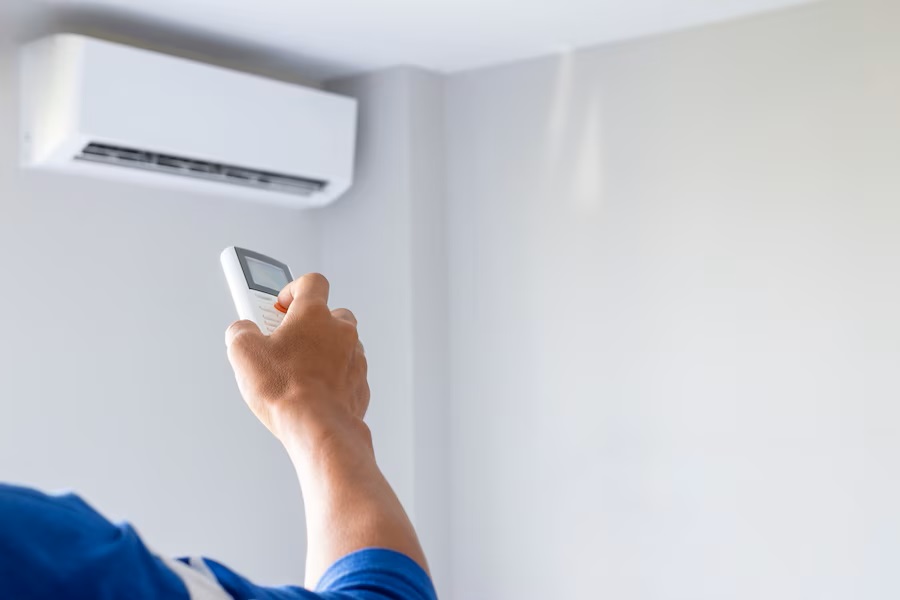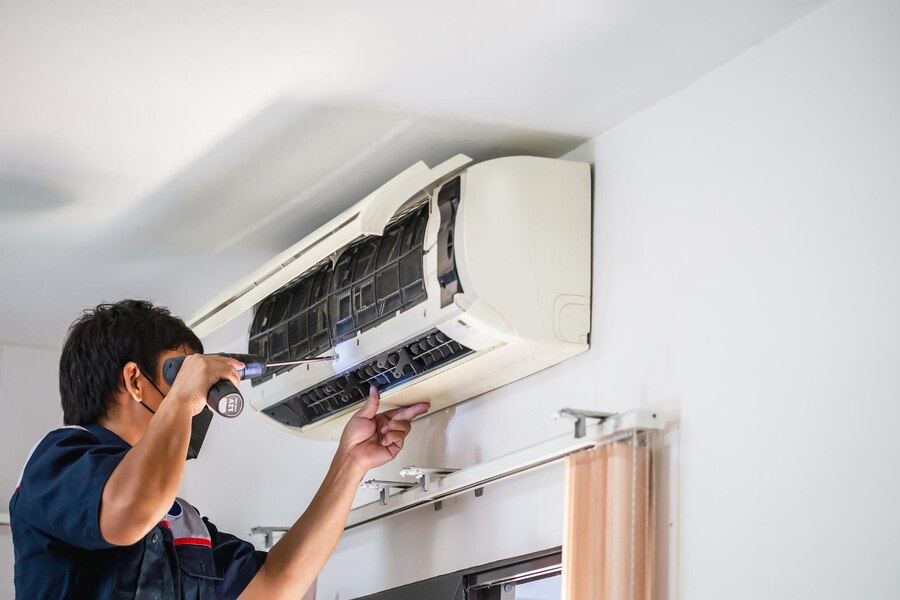When it comes to maintaining a comfortable indoor environment, the relationship between humidity and AC performance is crucial. Buena Park, located in sunny California, experiences varying levels of humidity throughout the year. This article will explore the impact of high and low humidity on AC efficiency, energy usage, and cooling capabilities. We will also discuss how Tradewind Heating and Air can assist you in optimizing your AC system’s performance in Buena Park.
Heating and Air Conditioning Services
Impact of High Humidity on AC Efficiency
High humidity can significantly affect the efficiency of your AC system. When the air is saturated with moisture, it becomes harder for your AC unit to cool the air effectively. The excess humidity makes the air feel warmer and damp, leading to discomfort. Additionally, high humidity can cause condensation on surfaces and promote the growth of mold and mildew, which can damage your AC system and affect indoor air quality.
Tradewind Heating and Air specializes in addressing the challenges posed by high humidity in Buena Park. Our expert technicians can assess your AC system and recommend solutions such as dehumidifiers and proper ventilation to improve efficiency and maintain optimal humidity levels.
Effects of Low Humidity on AC Cooling
While Buena Park generally experiences moderate humidity levels, there are times when the air can become excessively dry. Low humidity can impact AC cooling by causing the air to feel colder than it actually is. This can lead to discomfort and a higher demand for heating, resulting in increased energy usage and costs.
Tradewind Heating and Air understands the effects of low humidity on AC cooling in Buena Park. We offer solutions such as humidifiers and moisture control systems to help you maintain a comfortable indoor environment while optimizing energy efficiency.
Humidity’s Influence on Energy Usage
The humidity levels in Buena Park can have a significant impact on your AC system’s energy usage. When the air is excessively humid, your AC unit has to work harder to remove the moisture from the air before cooling it. This increased workload leads to higher energy consumption and, consequently, higher utility bills.
On the other hand, low humidity can also affect energy usage. When the air is too dry, it can make your AC system work harder to maintain a comfortable temperature, resulting in increased energy consumption.
At Tradewind Heating and Air, we understand the importance of energy efficiency in Buena Park. Our team can assist you in optimizing your AC system’s performance by recommending humidity control solutions tailored to your specific needs.

AC Performance and Excessive Moisture
Excessive moisture in the air can significantly impact your AC system’s performance. When humidity levels are too high, your AC unit may struggle to cool the air effectively, leading to reduced cooling capacity. This can result in longer cooling cycles, increased wear and tear on the system, and potential breakdowns.
Tradewind Heating and Air specializes in addressing AC performance issues caused by excessive moisture in Buena Park. Our experienced technicians can assess your AC system, identify any underlying issues, and provide solutions to optimize performance and prevent damage.
Optimal Humidity Levels for AC Efficiency
Optimal humidity levels are crucial for maintaining AC efficiency in Buena Park. The ideal range is typically between 40% and 60% relative humidity. Within this range, your AC system can effectively cool the air without excessive strain or energy consumption.
Tradewind Heating and Air can help you achieve and maintain optimal humidity levels for AC efficiency in Buena Park. Our team can recommend and install humidity control solutions tailored to your specific requirements, ensuring your AC system operates at its best. Maintenance of optimal humidity levels is crucial for ensuring the efficiency and longevity of your air conditioning system, and Tradewind Heating and Air is here to assist you every step of the way.
Understandig the Relationship Between Humidity and AC at Tradewind HVAC
The relationship between humidity and AC performance is vital for maintaining a comfortable indoor environment in Buena Park, California. Whether you are dealing with high humidity or low humidity, Tradewind Heating and Air has the expertise and solutions to optimize your AC system’s performance. Don’t let humidity compromise your comfort and energy efficiency – contact Tradewind Heating and Air today for a consultation tailored to your needs.

FAQs for The Relationship Between Humidity and AC Performance
Q1: What is the relationship between humidity and AC performance?
The relationship between humidity and AC performance is crucial. High humidity levels can strain your air conditioning system, making it less efficient and less capable of cooling your space effectively.
Q2: How does humidity affect AC performance?
Humidity affects AC performance by making it harder for the system to remove moisture from the air. When humidity levels are high, the AC must work harder and longer to achieve the desired temperature, leading to increased energy consumption and reduced cooling capacity.
Q3: Can high humidity damage my AC system?
Yes, high humidity can damage your AC system. Excessive moisture in the air can cause condensation to form on various components of the AC, leading to rust, mold growth, and potential electrical issues. Regular maintenance and humidity control are important to prevent such damage.
Q4: What is the ideal humidity level for optimal AC performance?
The ideal humidity level for optimal AC performance is between 30% and 50%. This range allows the AC to effectively cool the air without overworking the system. Using a dehumidifier or ensuring proper ventilation can help maintain this level.
Q5: How can I reduce humidity in my home to improve AC performance?
To reduce humidity in your home and improve AC performance, you can take several steps. Ensure proper ventilation, use exhaust fans in high-humidity areas like the bathroom and kitchen, seal air leaks, and consider using a dehumidifier in particularly humid areas.
Q6: Can a malfunctioning AC system cause increased humidity?
Yes, a malfunctioning AC system can cause increased humidity. If your AC is not functioning properly, it may not effectively remove moisture from the air, leading to higher humidity levels in your space. Regular maintenance and prompt repairs are essential to avoid this issue.
Q7: Are there any AC models specifically designed for high-humidity areas?
Yes, some AC models are specifically designed for high-humidity areas. These models often include features like enhanced dehumidification capabilities, variable-speed compressors, and advanced airflow control to effectively handle high humidity levels.
Q8: How frequently should I change my AC filters to maintain optimal humidity levels?
To maintain optimal humidity levels, it is recommended to change your AC filters regularly. This helps ensure proper airflow and allows the AC to effectively remove moisture from the air. The frequency of filter changes may vary depending on usage and environmental factors, so it’s best to consult your HVAC professional for specific recommendations.
Q9: Can a humidifier be used in conjunction with an AC system?
Yes, a humidifier can be used in conjunction with an AC system. While AC systems focus on cooling and dehumidification, a humidifier adds moisture to the air when needed, especially during dry seasons. Proper balance and control of humidity levels are crucial for optimal indoor comfort.
Q10: How can Tradewind Heating and Air help with humidity-related AC issues?
Tradewind Heating and Air specializes in HVAC services and can help with humidity-related AC issues. Their team of experienced professionals can provide expert advice, maintenance, repairs, and even recommend and install AC systems with enhanced dehumidification capabilities. Contact Tradewind Heating and Air for all your humidity and AC performance needs.

